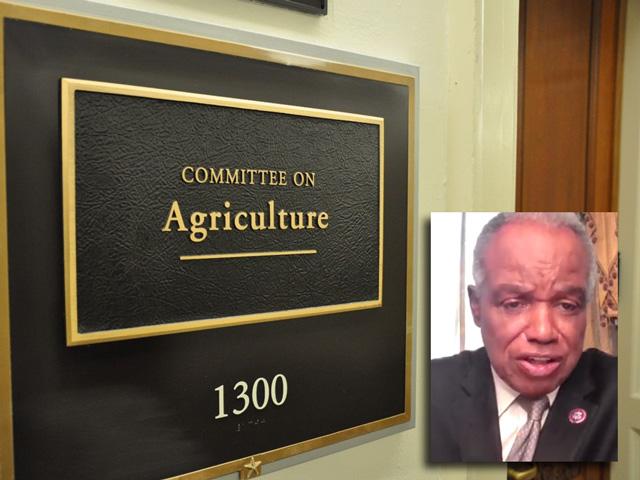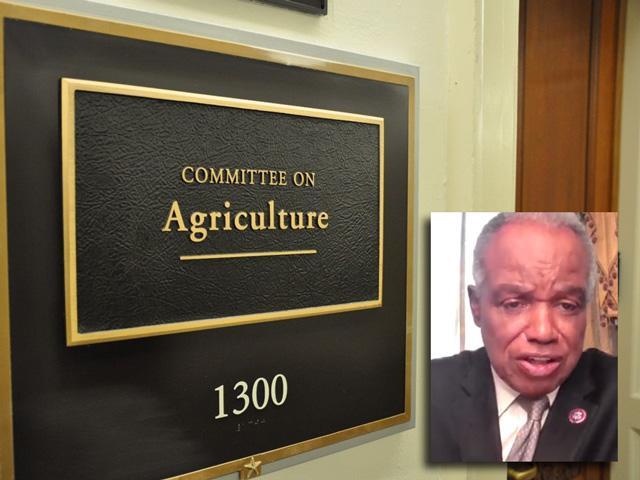Ag Policy Blog
House Democratic Aggies Spell Out Demands for Farm Bill
WASHINGTON (DTN) -- Democratic members of the House Agriculture Committee on Wednesday released a statement of principles for the next farm bill that draws a hard line against cutting nutrition programs or shifting conservation dollars to the commodity programs.
The statement essentially spells out where House Democrats have stood since last year on the farm bill.
While both the House and Senate Agriculture Committee members have indicated they are ready to ramp up negotiations on the farm bill, much of that work remains stalled while Congress is still trying to figure out how to pass the annual spending bill for USDA and other government agencies. The next deadline approaching to reach a deal is in early March.
Rep. David Scott, D-Ga., ranking member on the House Agriculture Committee, in a call Tuesday, stressed that Democratic votes will be needed to pass a bipartisan farm bill out of the House.
"Unfortunately, bipartisanship has fallen victim to the right-wing extremists who are currently dominating the House Republican caucus."
Still, Scott said he and House Agriculture Committee Chairman Glenn "GT" Thompson, R-Pa., "have a good working relationship" and we're working together on crafting a farm bill.
In the statement, Scott emphasizes that Republican "infighting" has delayed work on the farm bill.
Hitting on a main priority, Scott said House Democrats will oppose any plan that would take funding from the Supplemental Nutrition Assistance Program (SNAP). Republicans say USDA wrongly updated SNAP's "Thrifty Food Plan," increasing the ten-year costs of SNAP by as much as $300 billion. Scott said GOP plans call for taking as much as $30 billion from SNAP or trying to hold the Thrifty Food Plan update as "revenue neutral."
P[L1] D[0x0] M[300x250] OOP[F] ADUNIT[] T[]
"There's no way I'm going to accept that and none of the Democrats on this committee are going to accept that," Scott said.
On a second potential pot of money, House Republicans want to take the conservation dollars approved as part of the Inflation Reduction Act (IRA) and roll those leftover funds, about $15.5 billion, into the farm bill baseline. Scott said the GOP plan would take half of those dollars to boost the commodity title, "while doing little to nothing for our small farmers, our minority farmers, our specialty crop farmers."
In their principles statement they added, "House Democrats will not support a farm bill that takes IRA energy funding away from its intended purpose."
Rep. Shontel Brown, D-Ohio, who is the ranking member on subcommittee for commodities and risk management, said on Tuesday's call that the agriculture industry needs to include support for minority farmers, urban farmers and specialty crop producers
Brown also said her district also is home to a lot of people who live below the poverty line and rely on SNAP. Highlighting the "principles" document, Brown also credited House Minority Leader Hakim Jeffries, D-N.Y., for supporting the stances being taken.
"These aren't radical demands. We don't want to increase hunger, we don't want to play games with existing legislation and we don't want to make agriculture less diverse than it already is," Brown said.
"This industry is not going to thrive in the 21st Century without pulling in entrepreneurs and startups from every background in every county," she said.
Later in response to a question, Brown also noted, "Reference prices do need to be increased, but not at the expense of nutrition."
The House Democratic statement and comments come a day after Senate Agriculture Committee Chairwoman Debbie Stabenow, D-Mich., floated a plan that would provide farmers with a higher premium subsidy for an area insurance plan in return for not choosing a commodity program -- similar to the option used by cotton producers who can buy STAX insurance, which has an 80% premium subsidy, instead of enrolling in ARC or PLC.
Also see, "Senate Ag Chair Stabenow Pitches Crop Insurance Option Over Reference Price Hike,"
Chris Clayton can be reached at Chris.Clayon@dtn.com
Follow him on X, formerly known as Twitter, @ChrisClaytonDTN
(c) Copyright 2024 DTN, LLC. All rights reserved.






Comments
To comment, please Log In or Join our Community .